Mudhoney - Interview
by Mark Rowland
published: 13 / 10 / 2018
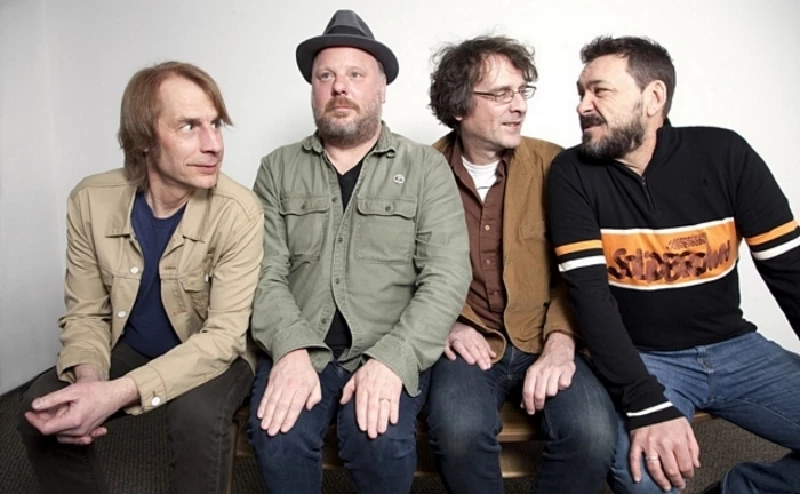
intro
Mudhoney leader Mark Arm chats about the Seattle grunge pioneers thirty years as a band and forthcoming album 'Digital Garbage'.
For Mark Arm and the rest of Mudhoney, making music has essentially become a hobby again. Arm works as a warehouse manager for SubPop records, the label that introduced them to the world 30 years ago. Every few years, he works on a Mudhoney or a Monkeywrench record. And that suits him fine. “It affords us the freedom to play, and create, and even tour however we want, you know?” he says. “It's not like we're counting on this band to feed our families or anything like that. And if we were, we'd be stupid.” Arm believes this is part of the reason why the band has lasted as long as it has. One of the first bands out of the gates during the Seattle fever of the late ‘80s and early ‘90s, Mudhoney resisted the urge to cash in at a major while the band’s peers – Nirvana, Soundgarden, Alice In Chains and their ilk – achieved superstardom as part of ‘grunge’. While the band did eventually sign with Reprise records in 1992, releasing three albums for the label, they never left their indie approach behind, and kept their success modest, and on their own terms. After leaving the label at the turn of the century and losing their original bassist Matt Lukin, who retired from music (he was replaced by Guy Maddison), the band a new phase as one of America’s premier messy psych rock bands, stretching their sound as far as they could, within its limits. They also settled into a way of working that they’ve stuck with ever since. “Other bands like the Melvins have been around longer than us. They don’t have day jobs or anything like that, but they tour a shit ton and they put out a lot of records. In a way I like being home, hanging out with my family and my animals.” Mudhoney have accidentally settled into a five-year cycle for releasing albums – one that happens to coincide with big career milestones. The newest record, “Digital Garbage”, lands on their 30th anniversary as a band. “Vanishing Point”, the previous album, landed on the band’s silver anniversary. “The Lucky Ones” marked year 20. “We actually thought we were going to start working on the new record earlier,” Arm says. “But things got sidetracked with Steve and I doing a bunch of Monkey Wrench stuff, like, three years ago.” Digital Garbage Is a firey, punchy record, following on, to an extent, from the ‘old Mudhoney, but older’ approach of “Vanishing Point”. But the record still follows the textural expansion that the band has pursued on its post-2000 releases – it’s there in the extended organ solo at the beginning of “Kill Yourself Live”, the vintage synths on “21st Century Pharisees”, the atmospheric “Night and Fog.” “In the past if we had synth, it was just like, ‘Let's make Hawkwind noises and see what we can come up with.’ We actually brought in a guy who knew what he was doing for a couple of songs on the last record. Since then, we played in Asheville, North Carolina and got invited down to the Moog factory and warehouse on a Saturday when it was closed, but we got a tour of it anyway. They offered us an artist discount. “Guy has gotten a couple of synthesizers since then and he's gotten to know how to use them fairly well. He’s got a synthesizer band. It’s two people. Actually, it's three people. Two people who play synths and a projectionist, which is of course what you'd want with something like that. So he had all of these really great ideas that we used. Even on songs that didn’t quite make the record but will be released, like on singles and whatnot.” While the band plays about with elements of its sound, the core – fuzzy guitars, yelling, rolling drums, snark – is always intact. The group still works in a similar way to how they did in the start, Arm explains. In the early days, Arm and guitarist Steve Turner would get together at Arm’s apartment and exchange riffs, then take the best ones to the practice space. “Things are so much easier now because we actually have a recording device that we can put stuff down, so we can just refer back to that. Because we only really practice once a week. Sometimes we'll get maybe two days in a row, but Steve lives in Portland, and he has a job now, so he can’t stay up for a couple days. So we always have something to refer back to instead of just like, ‘How did that go? Do you remember how that went?’ Which was, I think, the first 10 years.” “Digital Garbage” was recorded over three weekends, with a two-month gap between the second and third sessions. The band recorded quickly, laying down 11 songs in the first two weekends, and bringing another seven songs to the third. The band recorded to two-inch tape and mixed down to quarter inch tape (“We recorded the old, old way. Well, not the old, old way, but say like ‘70s, you know?”). It did make it into Pro Tools for mastering, however. “I think we're pretty good at not overthinking things and going with our guts,” says Arm. “Oftentimes, the first instinct seems like the best. We’ve worked with engineers before who tell us about other bands that they worked with where...the guitar player will put something down, it’ll sound great, but he’ll spend a couple days trying to improve and then they end up using that first thing. That just seems like that would be such a source of frustration, and also like you wouldn’t even remember where you were at anymore. Things would just get so confusing and overwhelming, like, ‘Did I like the 36th take of that or the 74th?’ “That's the trouble with being a perfectionist. For good rock and roll, there’s no perfect. It should be somewhat loose.” The only song that posed a particular challenge was “Night and Fog”, which builds on a repetitive bass riff. “Trying to figure out where the vocals should go and what goes in between that, that was a little bit challenging. To get a good take on that with the right bass, that was definitely the most difficult song to record.” Thematically, the record takes on the ugliness of modern America – Trumpism, the alt-right, social media storms and internet fame. The humour on the record is jet black, with lines such as “Use a filter with bunny ears/maybe add some dancing fruit/lock yourself in a freezer/get naked and peel off your skin.” on “Kill Yourself Live”. “It’d be funny if it wasn't true. That's fucking terrible. I'm very conflicted by the record in that regard... “I'm not on social media. I’m not on Facebook – or anything – person, so I don't have real first-hand knowledge. I'm just sort of observing from a distance. A pretty far distance.” Arm is perhaps a little closer to the political situation in the US. Songs such as “Paranoid Core”, “Please Mr. Gunman”, “21st Century Pharisees” and “Prosperity Gospel” take on the hypocrisy, propaganda and love of firearms of the new American right. “It's so weird to how they’re like, ‘We don't want terrorists to have guns,’ Or, ‘We're so afraid of terrorists,’ but they’ll just let anyone print up a fucking AR15,” Arm says. “It’s insane...I don’t know how actively the NRA would really want guns to be manufactured that way because they're basically the lobby that represents the gun manufacturers. If all of a sudden people can just print their own guns and don't have to pay anybody for them, except maybe I guess the 3D printer makers, the NRA can’t be too psyched about that. But I guess it might boost ammo sales.” Arm compares the situation in the US with post-referendum UK – there is a shared mentality in some corners, he agrees, though it hasn’t gone quite as “through the looking glass” as the states. “But you have Boris Johnson, who has a funny haircut.” Mudhoney as a band has never shied away from voicing its opinion, especially when it comes to music. For all its stripped back immediacy, the band’s music has always been the product of serious music fans – their music is littered with references to bands past, the equipment they use is vintage. The sound of the band is a fuzzy melting pot, predominantly pulling from various styles of rock from the 60s and 70s. It’s not a style they ever expected would provide them with any success. Arm and Turner’s previous band, Green River, lasted three years before imploding, without having much of an impact. Drummer Dan Peters was in Bundle of Hiss for five years – they made even less of an impression. Some of their previous bands only lasted one show. Mudhoney was supposed to be a bit of fun before they all went to college. Then their first single, “Touch Me I’m Sick” (still one of the greatest rock ‘n’ roll singles of all time), took off in the UK.. “In the rest of the US, we were sort of on a fanzine level. Whereas you can have a DJ on a major radio station like BBC, John Peel was on and that’s a nationwide thing. There are limited amounts of radio stations that you could even tune into, right?” “That’s more of a concentration of ears to hear your music than in the US when everything is just so spread apart and regional. At least it was then. It’s less so now.” That was the first murmurings of the hype around Seattle that would see Mudhoney’s peers pulled into – and ultimately consumed by – the mainstream. The irreverence of the original scene was replaced with moody posturing, even from originators such as Soundgarden. Only Mudhoney and Melvins maintained a playful spirit, as subsequent waves of grunge bands watered the sound down even more. “It becomes the new thing. Becomes the new standard,” says Arm. “There’s always people who play music to get something out of it other than the end in itself, if that makes any sense. There’s people who just follow whatever the fashion trend or the sound that's breaking through and they try to emulate that because they think that’s how they’re going to be well known and sell lots of records. It works sometimes. Fucking Creed and Nickelback were huge, but from my perspective, there’s nothing there.” “A lot of that was down to luck then, and it’s even harder to become a huge star, now. There’s less money in music than there’s been in decades. It takes a lot of work to build an audience for no return. If you want to be in it, you’d better be in it for the love of writing and performing”. “If your whole goal is to make a lot of money, you should be doing something else besides playing music. If you just want to be famous, I don't know what the fuck point of that is, but there's got to be ways on Instagram or YouTube, maybe. I don't know. Fuck. “But the crazy thing is there's people who are famous for just being famous. And how it is that these people are the ones who get plucked out of the steaming mass of humanity over other people, I have no idea.” In a world where likes and metadata matter more to record labels than a catchy tune or a great live show, new bands today have to put a lot of effort into building a band besides writing songs and playing them. From Arm’s perspective, it’s probably best not to care. “If you're not having fun playing music then there's really no point. I'm not sure what you’re trying to get out of it other than that, you know?”
Band Links:-
http://mudhoneyonline.com/https://twitter.com/_mudhoney
https://www.facebook.com/pages/Mudhoney/120610017957082
Picture Gallery:-
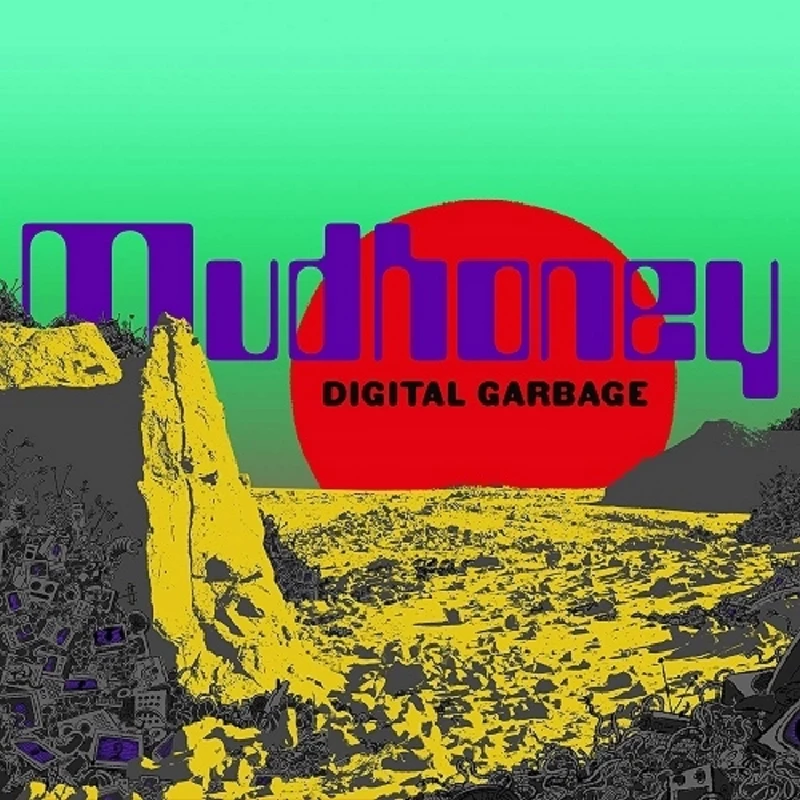
interviews |
|
Interview (2013) |
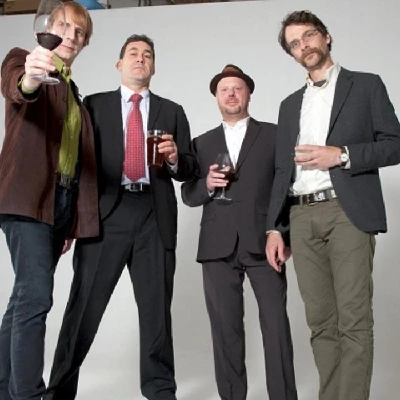
|
| Paul Waller talks to Mark Arm, the vocalist with seminal grunge outfit Mudhoney, about his group's forthcoming new album, 'Vanishing Point' |
| Interview (2002) |
live reviews |
|
Ritz, Manchester, 29/5/2015 |
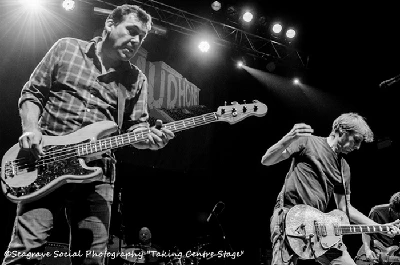
|
| Billy Seagrave watches grunge rockers Mudhoney play an exuberant and fiery set at the Ritz in Manchester |
| 02, London, 17/7/2008 |
| Forum, London, 31/7/2008 |
favourite album |
|
Superfuzz Bigmuff (2009) |
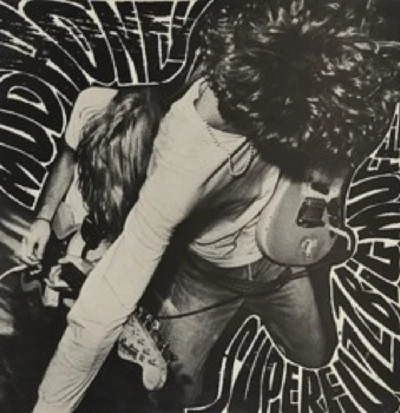
|
| Jeff Thiessen examines Seattle-based grunge group Mudhoney's seminal debut EP, 'Superfuzz Bigmuff' |
reviews |
|
Since We've Become Translucent (2002) |
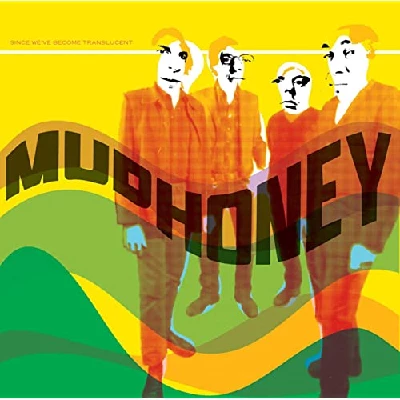
|
| Spectacular eighth album " packed full of.... Stooges-inspired rock n roll " from Godfathers of Grunge, Mudhoney |
most viewed articles
current edition
Carl Ewens - David Bowie 1964 to 1982 On Track: Every Album, Every SongArmory Show - Interview with Richard Jobson
John McKay - Interview
Colin Blunstone - Thalia Hall, Chicago, 16/7/2025
Billie Eilish - O2 Arena, London, 10/7/2025
Bathers - Photoscapes 1
Visor Fest - Valencia, Spain, 26/9/2025...27/9/2025
Loft - Interview
Sir Tim Rice - Interview
Robert Forster - Interview
previous editions
Manic Street Preachers - (Gig of a Lifetime) Millennium Stadium, Cardiff, December 1999Heavenly - P.U.N.K. Girl EP
Beautiful South - Ten Songs That Made Me Love...
Oasis - Oasis, Earl's Court, London, 1995
Peter Perrett - In Dreams Begin Responsibilities Interview Part One
Boomtown Rats - Ten Songs That Made Me Love....
Coldplay - Wembley Arena. London, 16/8/2022
Prolapse - Interview
Pixies - Ten Songs That Made Me Love...
Trudie Myerscough-Harris - Interview
most viewed reviews
current edition
Davey Woodward - Mumbo in the JumboSick Man of Europe - The Sick Man of Europe
Lucy Spraggan - Other Sides of the Moon
Amy Macdonald - Is This What You've Been Waiting For?
Phew, Erika Kobayashi,, Dieter Moebius - Radium Girls
Bush - I Beat Loneliness
Suzanne Vega - Flying With Angels
Alice Cooper - The Revenge of Alice Cooper
Cynthia Erivo - I Forgive You
Blueboy - 2
related articles |
|
Green River: Profile (2019 |
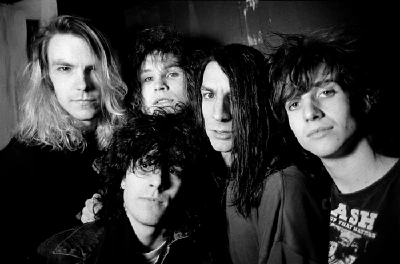
|
| Mark Rowland examines the career of grunge pioneers Green River, whose 1987 EP 'Dry as a Bone' and 1988 posthumous album 'Rehab Doll' have recently both been re-released. |
Pennyblackmusic Regular Contributors
Adrian Janes
Amanda J. Window
Andrew Twambley
Anthony Dhanendran
Benjamin Howarth
Cila Warncke
Daniel Cressey
Darren Aston
Dastardly
Dave Goodwin
Denzil Watson
Dominic B. Simpson
Eoghan Lyng
Fiona Hutchings
Harry Sherriff
Helen Tipping
Jamie Rowland
John Clarkson
Julie Cruickshank
Kimberly Bright
Lisa Torem
Maarten Schiethart